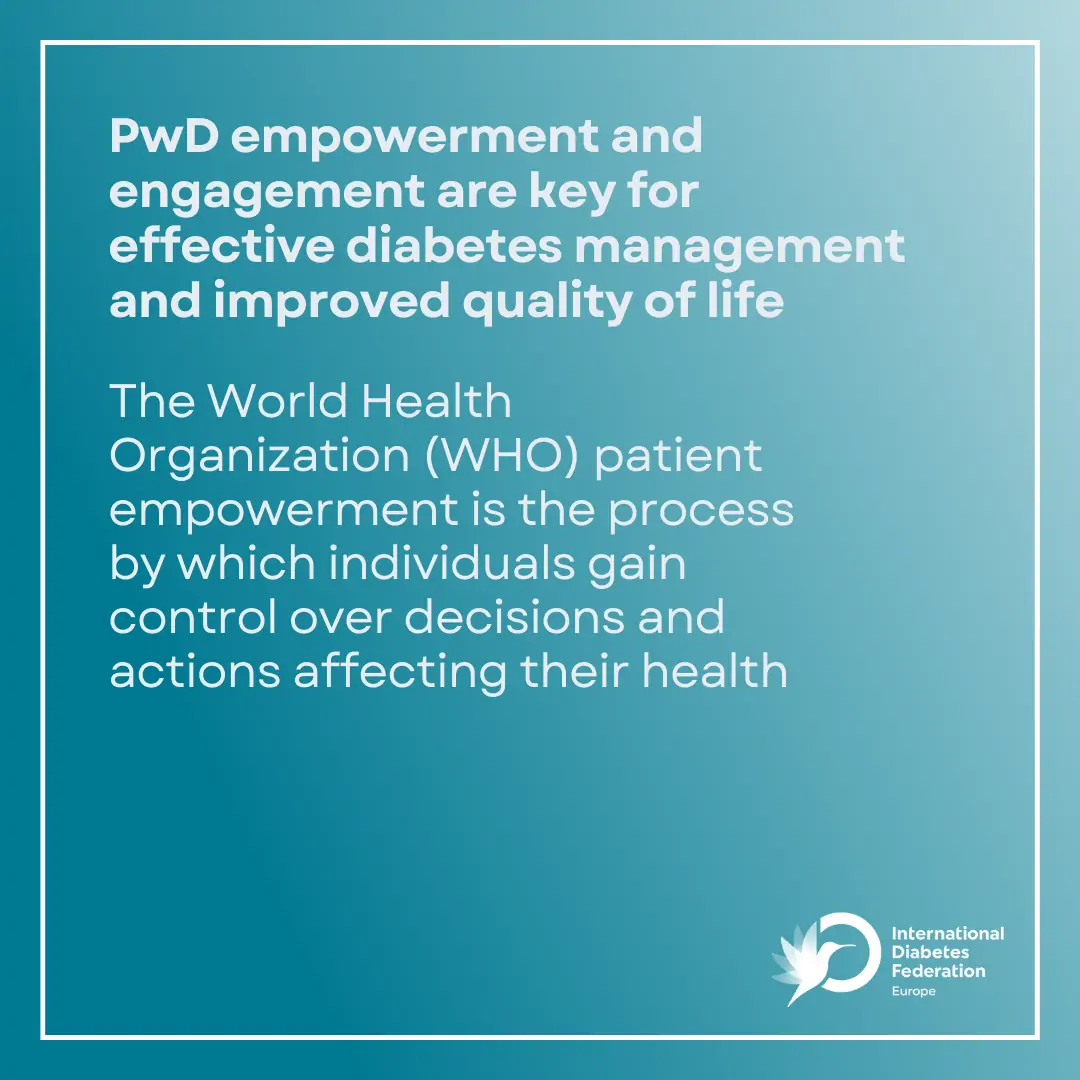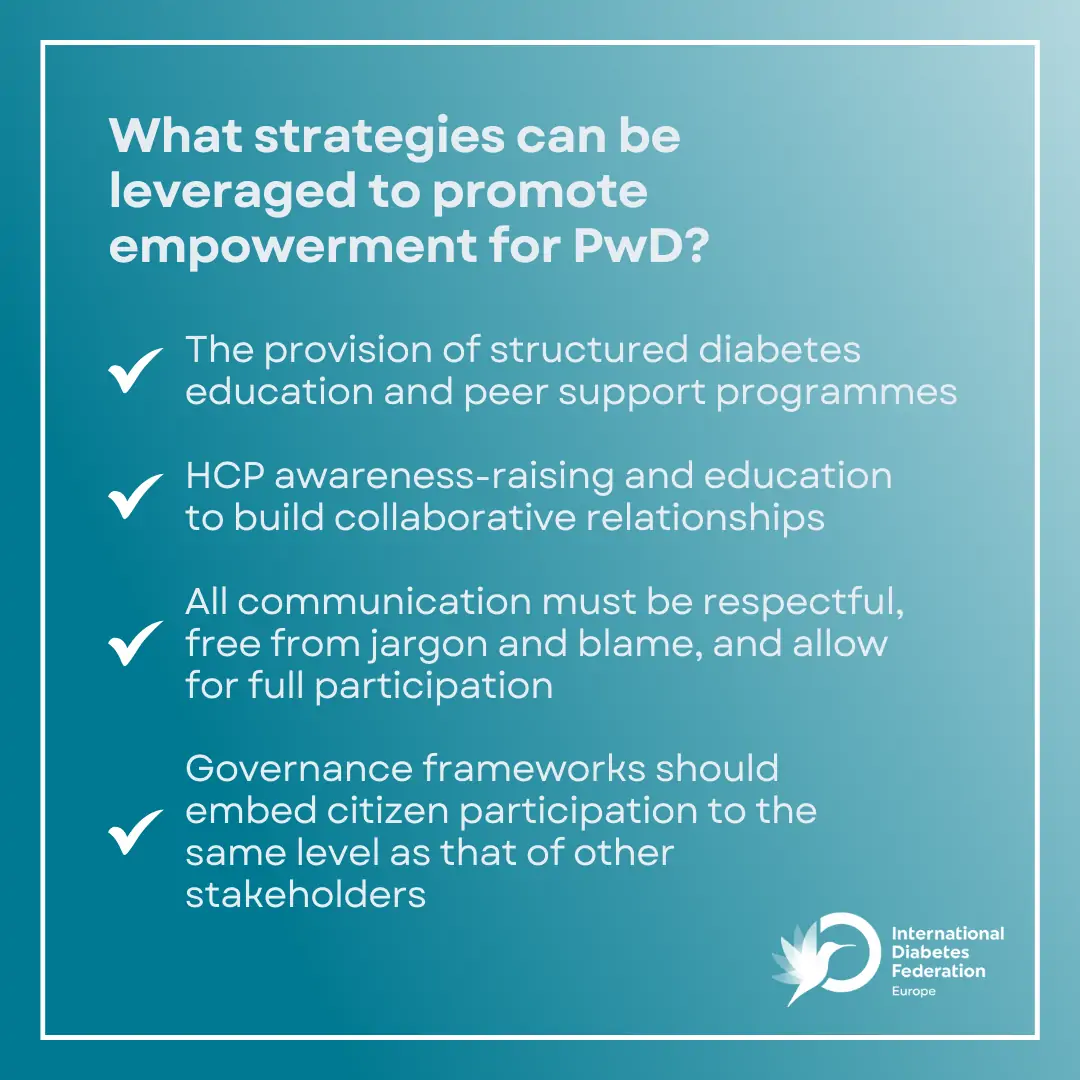Nothing about us, without us
Diabetes is a hugely complex disease which requires 24/7 management. PwD need to make constant decisions regarding food, physical activity, and medication, often with limited input from healthcare professionals (HCPs). For PwD, even normal activities such as going for walks, eating an ice-cream, travelling or breastfeeding a baby, require extra thought and planning. Empowerment and engagement of people living with diabetes (PwD) are pivotal to enable them to manage their diabetes effectively and improve overall well-being. Empowered PwD are better equipped to become active partners in their care, set prioritiesand make informed decisions.
According to the World Health Organization (WHO), patient empowerment is the process by which individuals gain control over decisions and actions affecting their health. This empowerment extends from the individual level to the community level, encompassing various aspects of self-care and advocacy. As well as ensuring that PwD are better equipped to manage their care, engagement and empowerment must cover all other aspects, affecting them.
Engagement and empowerment must extend to everything that affects PwD
PwD’s meaningful engagement and participation in research, for example, is essential to ensure that new innovations in diabetes care address their unmet medical needs and reflect their perspectives and preferences. This engagement – be it in the definition of research needs or design of clinical trials, coupled with engagement in evaluation processes as well as approval and reimbursement decisions – should be seen as a key driver in shaping the future of diabetes care.
Several strategies can be leveraged to promote empowerment
Obstacles to PwD empowerment are diverse, including health literacy, socio-economic factors, healthcare system integration, and insufficient recognition of the importance of citizen participation. However, several strategies can, and should, be leveraged to promote empowerment.
The provision of structured diabetes education and peer support programmes: this provides PwD with access to information, understanding of their condition, knowledge of the healthcare system as well emotional support.
HCP awareness-raising and education: HCPs play a vital role in facilitating PwD empowerment. When HCPs are aware of its importance, they can build collaborative relationships.
Language matters: all communication must be clear and respectful, free from jargon and blame, and explained in a way allowing for full participation.
Governance: across the board, governance frameworks need to be designed to embed citizen participation to the same level as that of other stakeholders.
In the lead up to World Diabetes Day we call for increased engagement and empowerment of PwD to ensure optimal health outcomes and the best possible quality of life. Together, United, Let’s Act on Diabetes.

